Student Blog
International
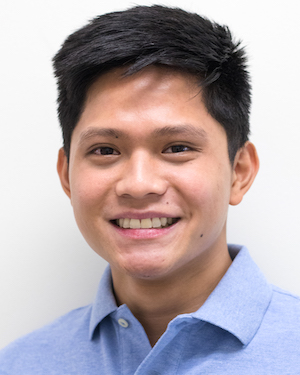
I am thankful for . . . ⟩
November 25, 2019, by Japeth
International Living in LA
November is thanksgiving season in American culture, and what better way to celebrate it than by having dinner with friends at the USC Chan division? Last Friday (November 22), the Global Initiatives team was thoughtful enough to organize an early thanksgiving dinner with the students and some faculty and staff of USC Chan. It was a wonderful way for us to de-stress and be with everyone. Everybody found something to do to help as we prepared the food!
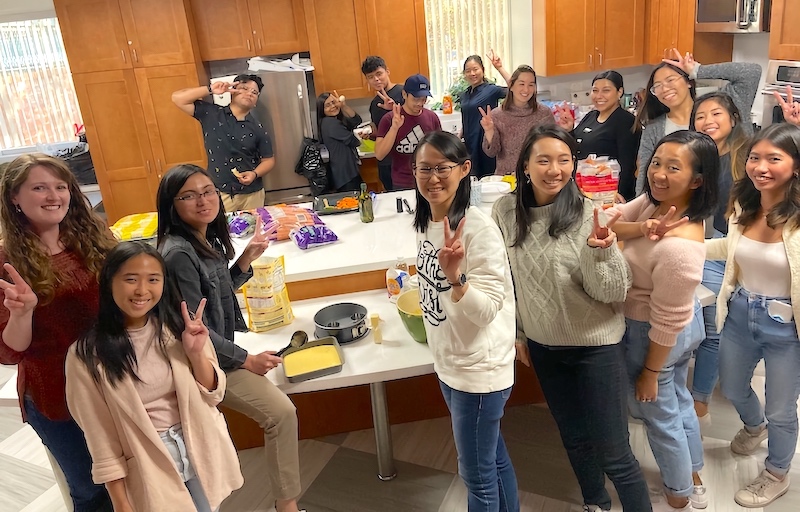
Before doing the meal prep, its always best to start it by taking a group photo while doing the Fight On pose! In this group photo, Dr. Emily Ochi, the MA1 Program Director and Bianca Ojeda, USC Chan’s social event program coordinator, showed the inner Trojan in them by also doing the fight on pose!!
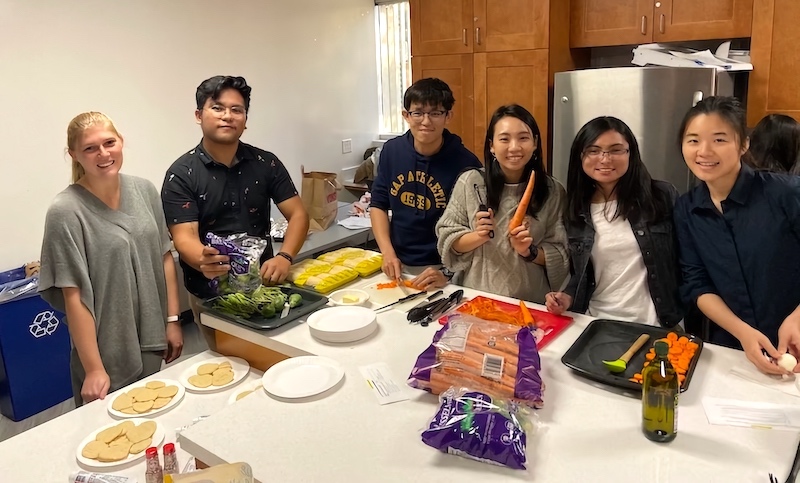
Katie Miller, MA2 student and also a member of USC Chan’s Global Initiatives together with MA1 students, Raffy Wagas, Lin Hung-Yi, Pan Yen-Wen, Hasmin Palo, and Yvonne Lin (from L-R).
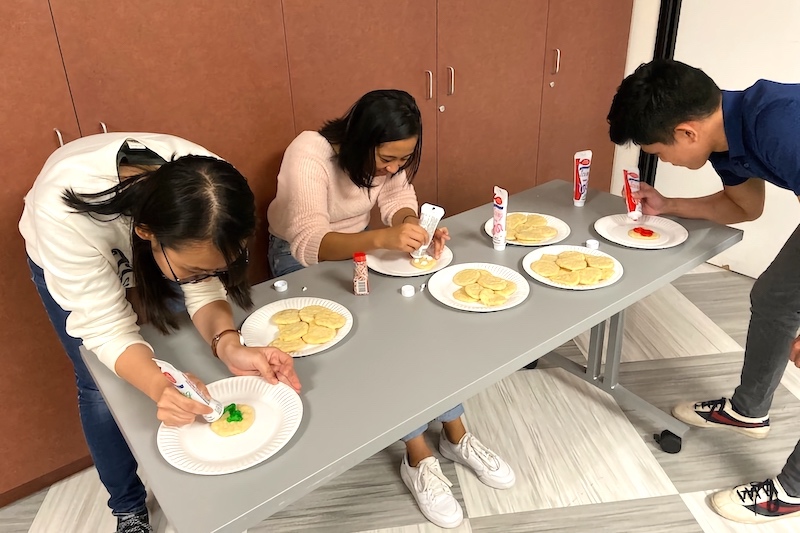
MA1 students designing their own cookies! That’s me right there!!
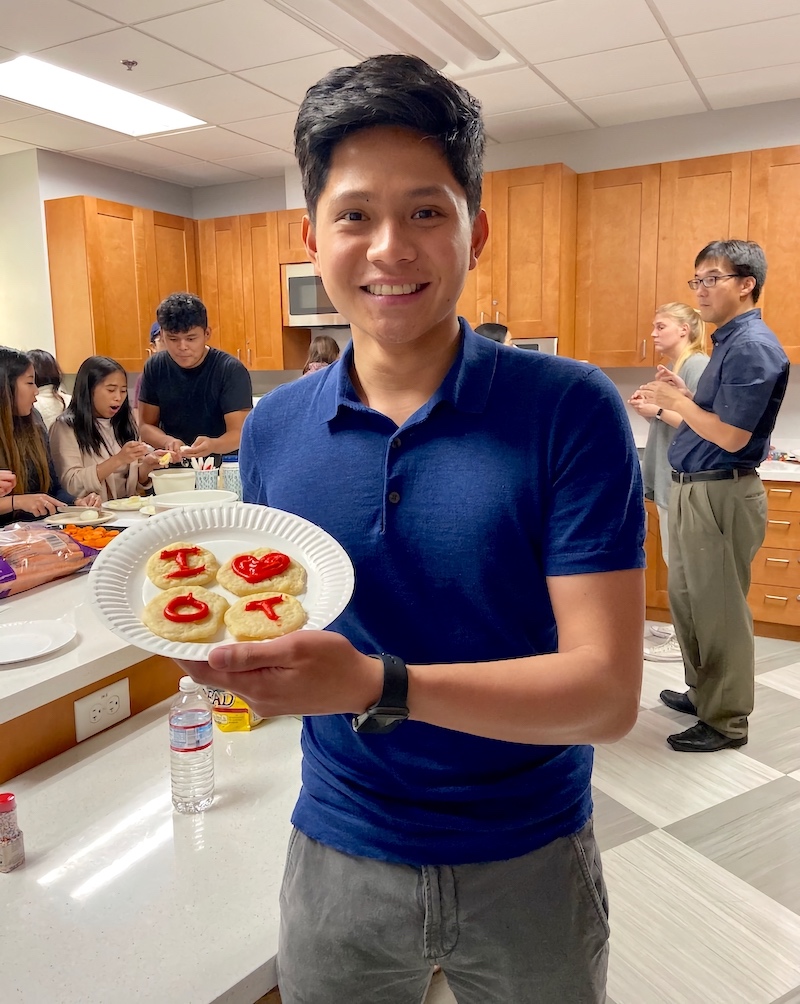
Here’s my photo showing the cookies that I designed . . . well I am not artistic to begin with and that’s the best that I could do! LOL
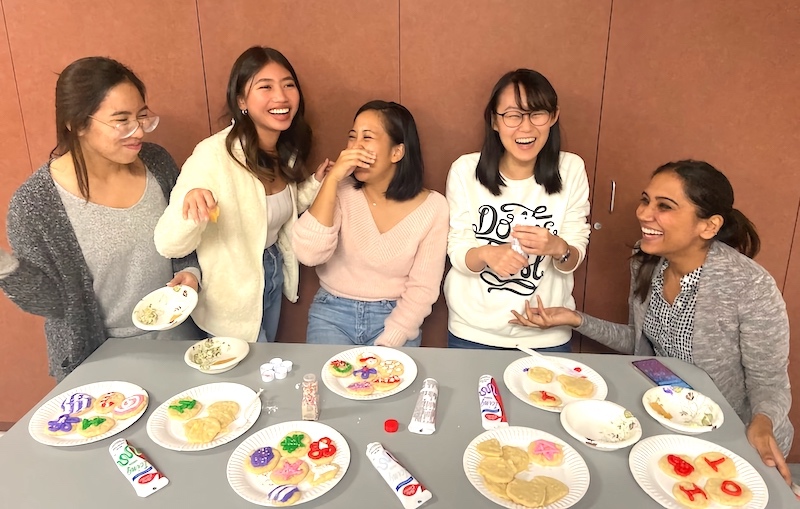
MA1 ladies showing their “girls just wanna have fun” look! Indeed, they look like they’re having sooo much fun!
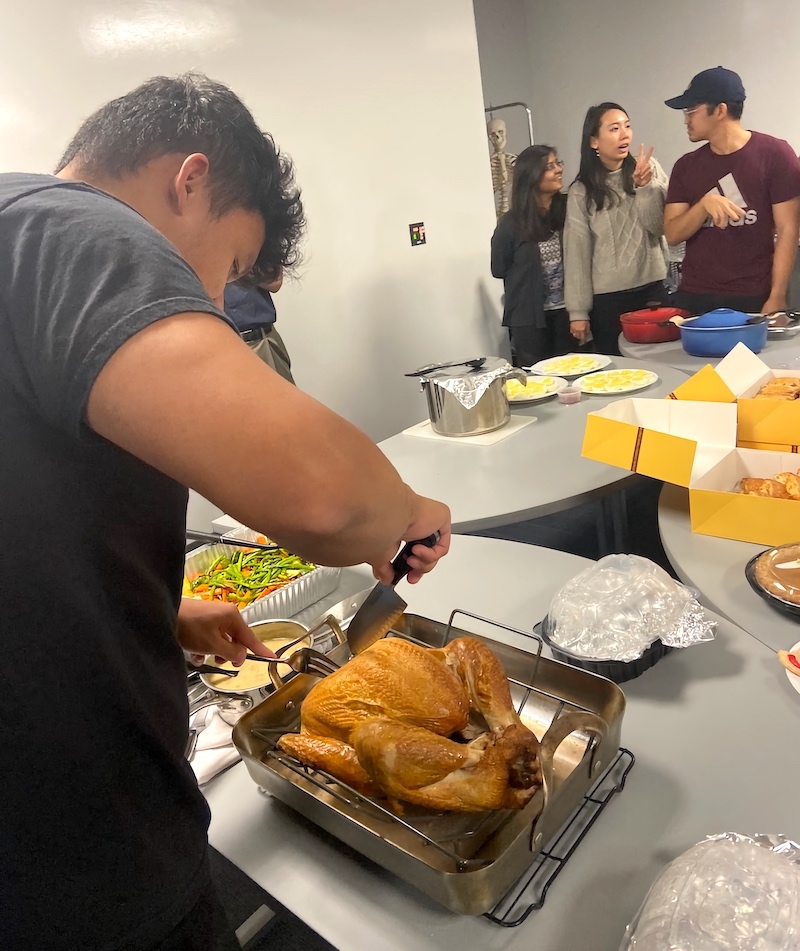
Of course, this is everyone’s favorite — turkey!!
I asked my friends who grew up here about thanksgiving and their answer in a nutshell is . . . it’s a time for us all to think of what has been great and why you’re thankful about it; some may also consider what did not work out or what failed if they see it as a blessing in disguise.
Honestly, when you’re facing a lot of stress and tons of schoolwork to do and on top of that, life gets in the way — what is there to be thankful about, right? But again, how we perceive things greatly affects how we feel and how we react to them. Last week too, while I was hearing the mass, the priest was preaching on how to live not on the ‘what if’, but live on the ‘even if’. Is this the universe trying to intervene? Hmmm.
With that being said, I took some time to do a thanksgiving reflection, and what I realized is something that I cannot discredit myself: one thing that happened to me this year that I am most thankful for is being able to take my MA and being able to thrive in a totally new environment. It’s difficult but it’s doable, especially if you are with the right people!
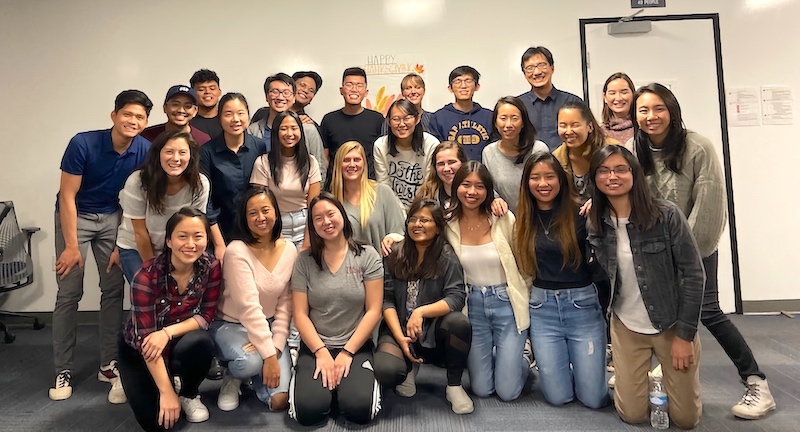
Life may be difficult at times, but being with the right people helps a lot. To me, these are the right people and I am so blessed to have them!
If I may ask you, what are you thankful for?
⋯

We don’t want tricks; we just want treats! ⟩
November 13, 2019, by Japeth
International Living in LA
As someone from the other side of the world, I haven’t had a legit Halloween experience. So when my cohort asked if we were down for some trick or treating, we immediately said yes! Everyone was just so excited because it was something that’s new to most of us.
Last Halloween, we had two celebrations: the first one was during our Quantitative class and the second one was when we went to Pasadena to do trick or treats. Dr. Myka Persson organized a potluck lunch for the MA1 cohort. We brought our food to share to everyone and Dr. Myka baked Halloween pumpkin cookies using their own family recipe! It was really delicious . . . like I ate 4 of it. I love how our professors at USC Chan practice occupational balance.
Now this is the part that I always look forward when blogging – sharing with you all the pictures!
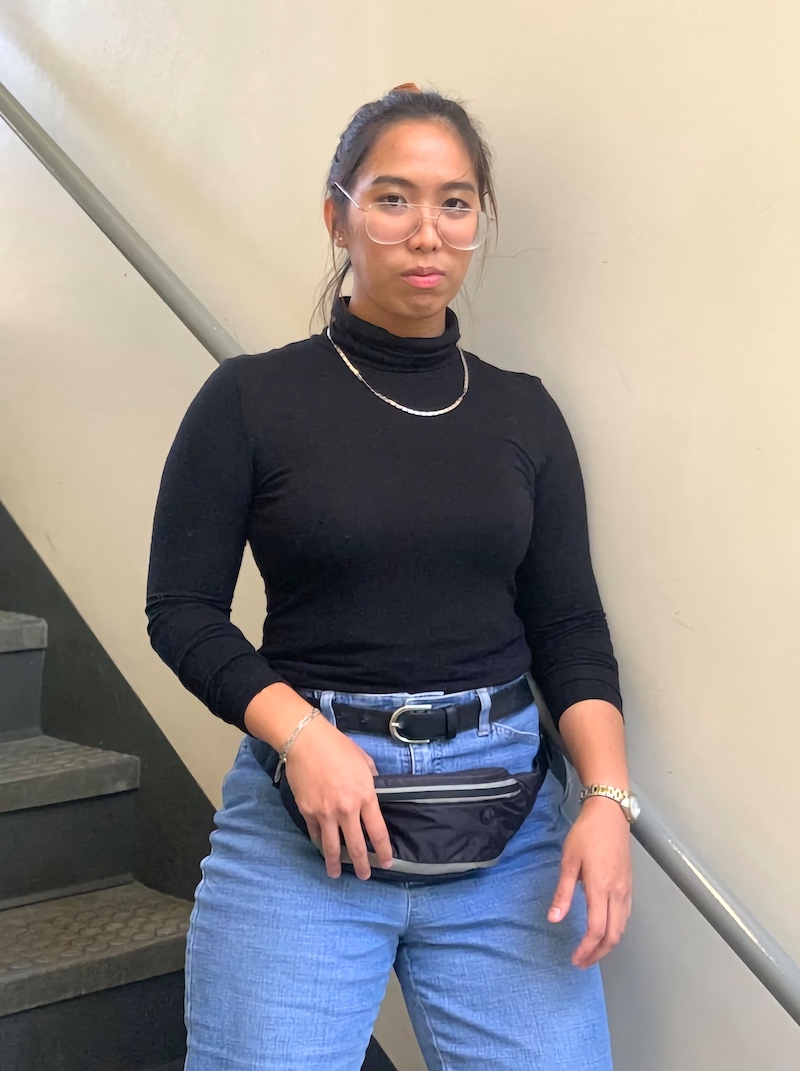
This is Andrea Abad channeling her inner Dwayne “The Rock” Johnson!
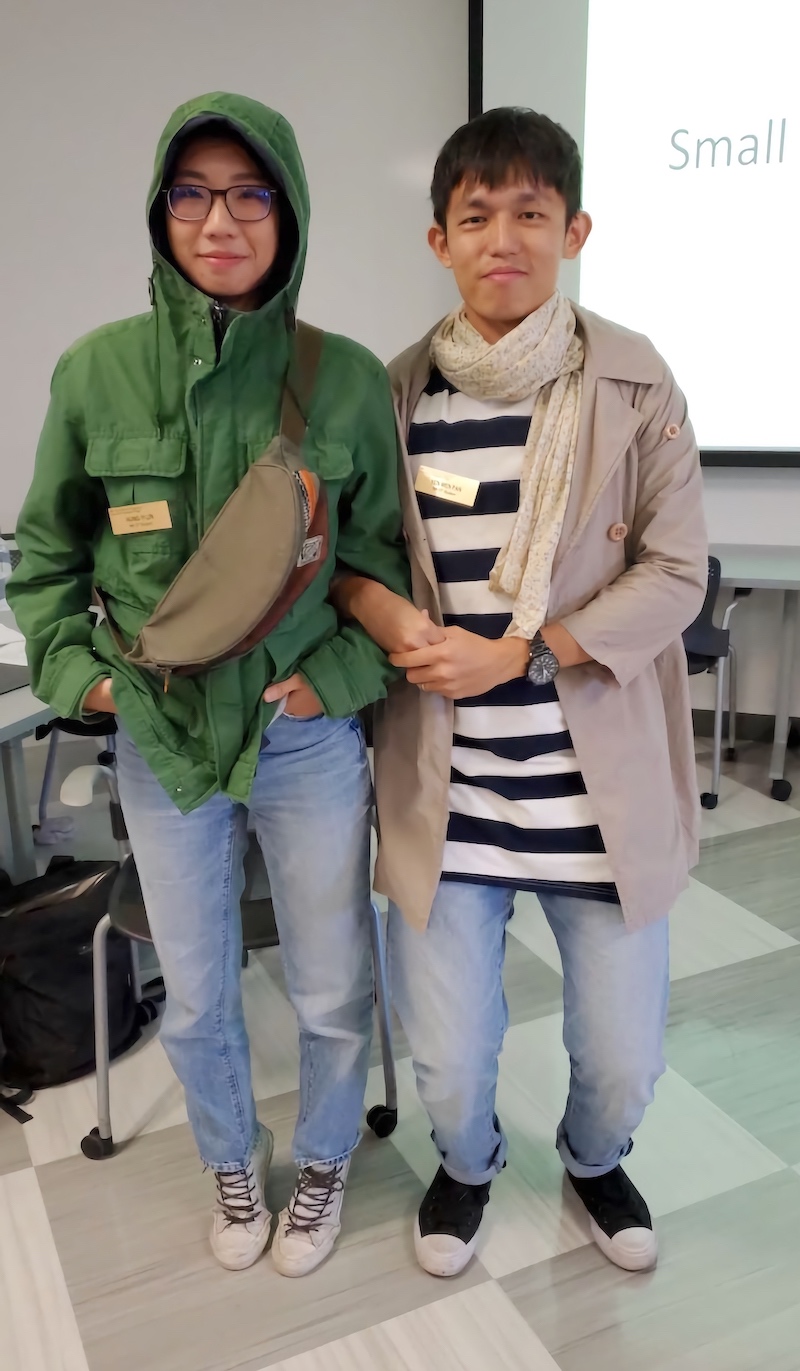
This is one of my personal favorites! These classmates of mine are actually married to each other and for their first Halloween experience, they decided to dress up as each other! Mr. Lin Hung-Yi dressed up as Ms. Pan Yen-Wen and vice versa!
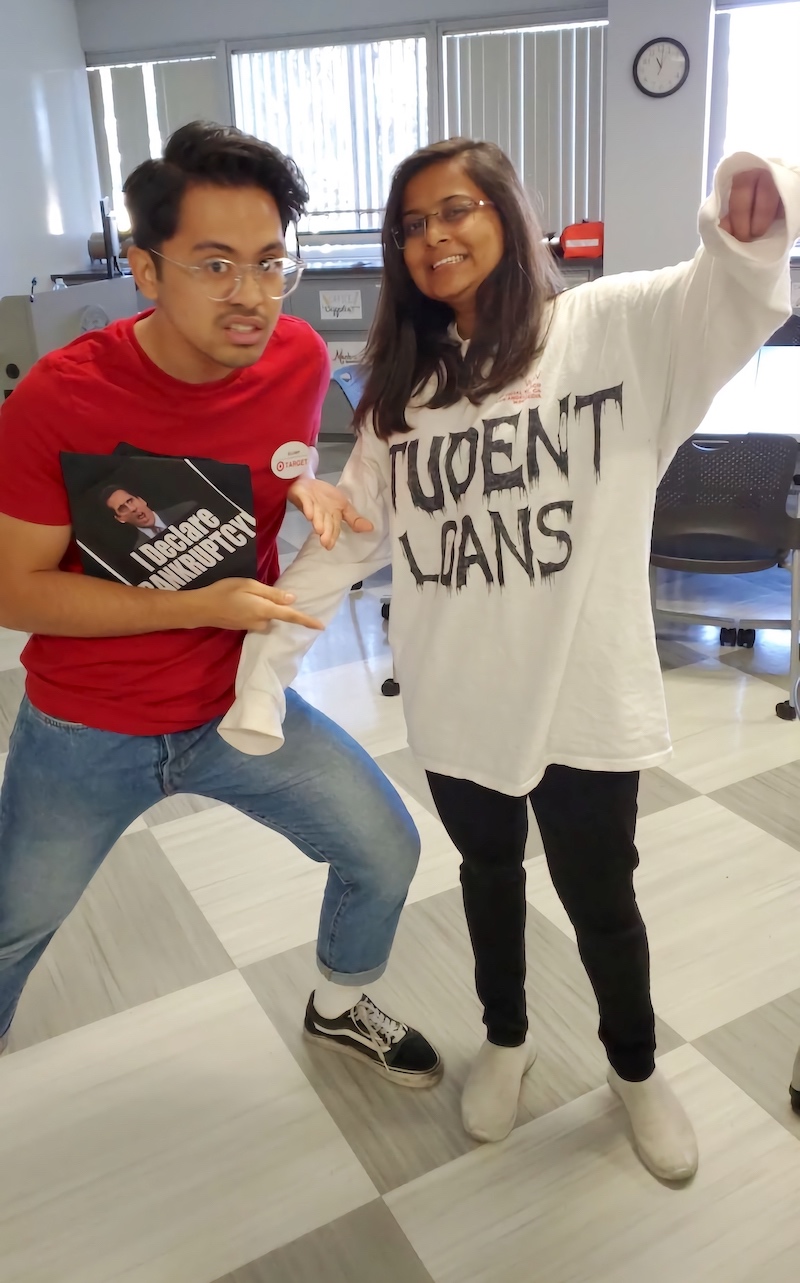
The guy in red is Elijah Ramos, a target salesperson; and the lady is Prutha Satpute, dressed up as student loans!
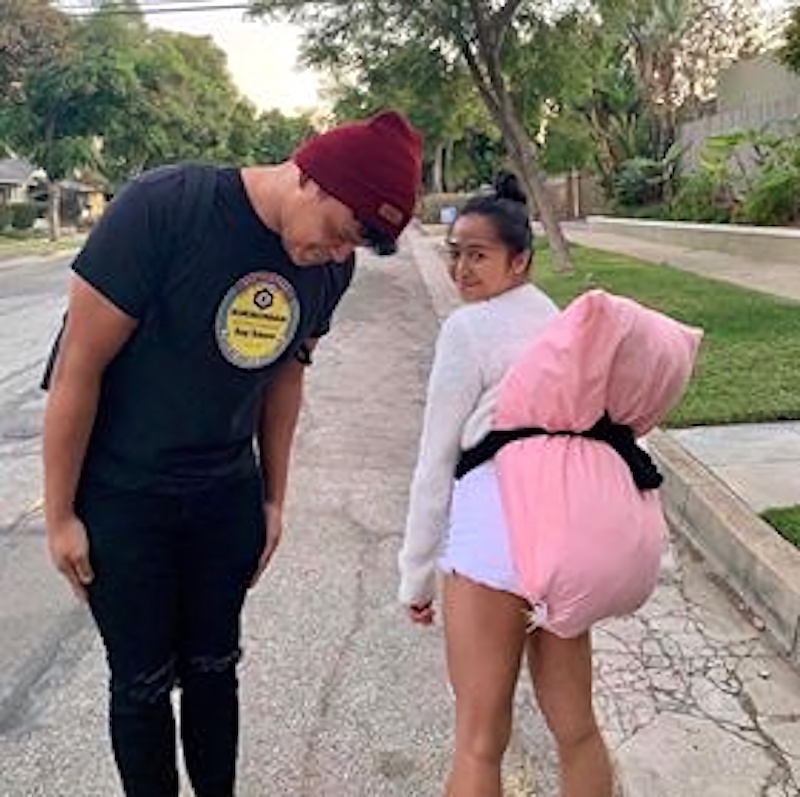
Reuben Raynes as Kikkoman and Czaria Biagtan as a sushi. This made me crave some Japanese food!
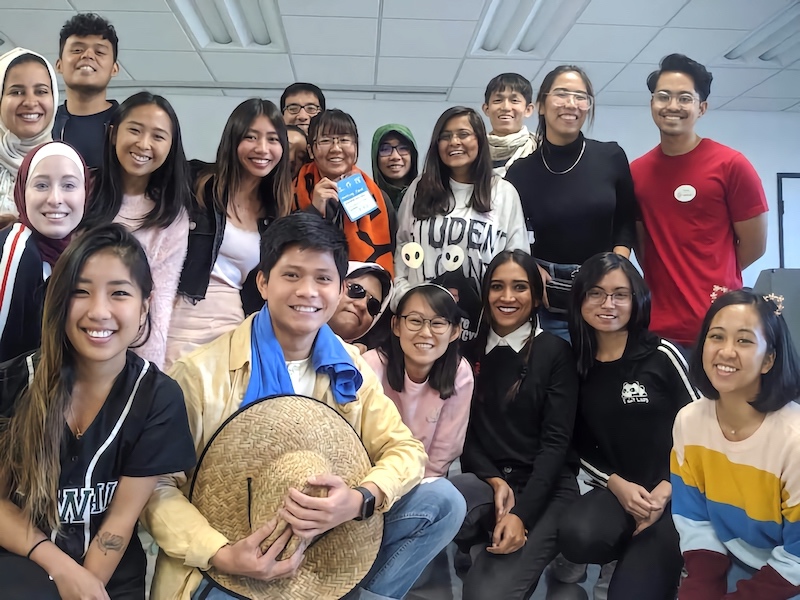
This photo was taken after our occupational science class.
Until our next adventure, Fight On!
⋯

Dreams are our Reality ⟩
September 18, 2019, by Japeth
Diversity Getting Involved International Living in LA
As I previously mentioned, USC Chan really knows how to welcome each and every student. Everyone makes sure that students feel the warmth and excitement of the entire Chan Division. Another way of them welcoming the international students is the Annual Welcome party at the Program Director’s house! We are very lucky to be able to spend time together as a cohort, together with Dr. Sarah Bream, Dr. Daniel Park, Dr. Emily Ochi, and other OT students from the Global Initiatives.
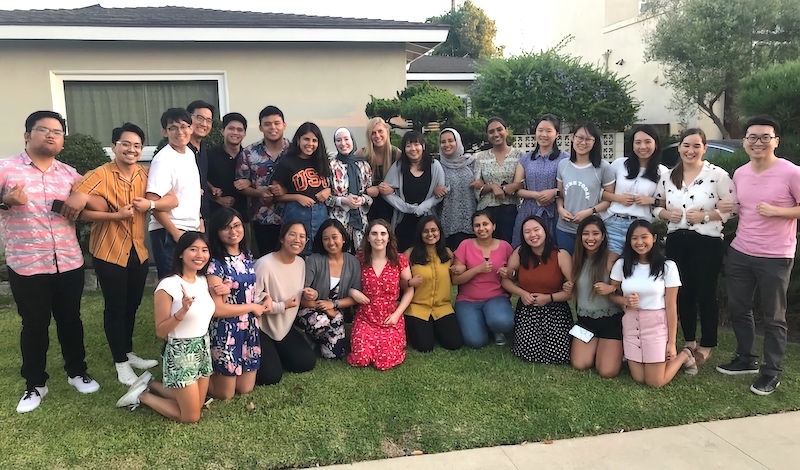
Group photo of the students of MA1 Program together with Dr. Ochi and Dr. Park. Also in this photo are OT students who work for the USC Chan Global Initiatives
It was kind enough of the faculty to prepare a bus ride, food (both meat and vegetarian!), desserts, and games! While Dr. Ochi was busy preparing the snacks and desserts and Dr. Park was also busy grilling the burger patties, the students from Global Initiatives made sure that we take time to get to know each other more and learn from everyone’s experiences. We played a game called “Two truths and a lie”. In this game, each of us needed to say two honest statements that pertain to ourselves and a lie that should really sound like an honest statement too! Here’s the catch: the more the lie sounds real, the more everyone gets confused, and of course the more the game gets exciting!
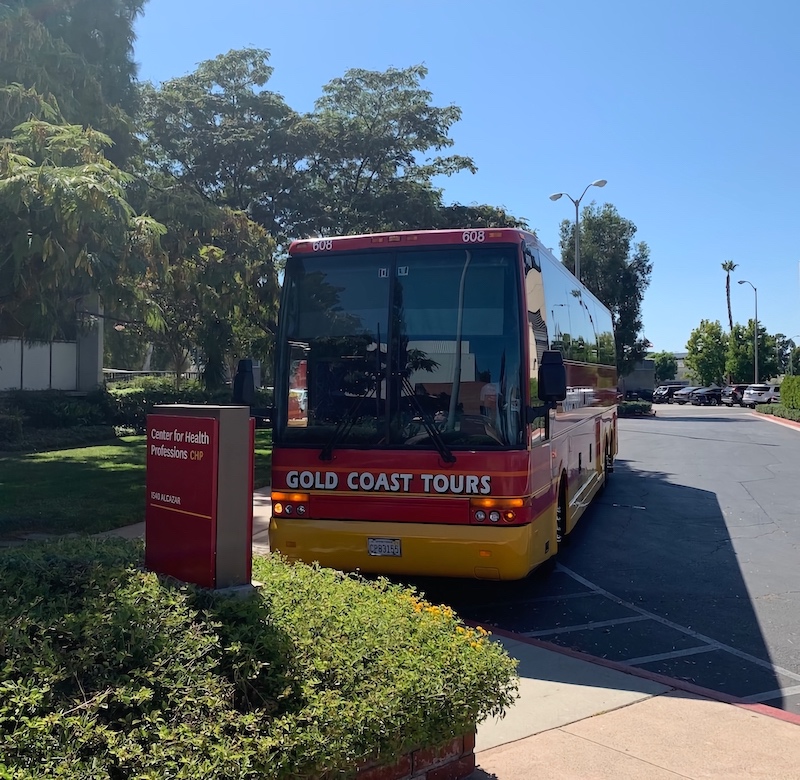
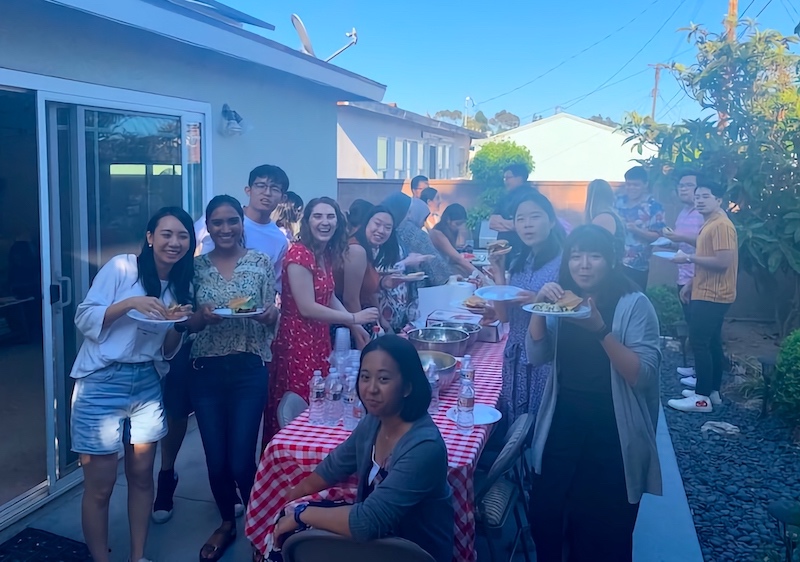
After the game, Dr. Park called us to go to the backyard to start eating! (I actually ate two vegetable patties and one meat patty, that’s how yummy they were!!) Now, I’m sure you are wondering how the title is connected to this content . . . hang on, were getting there! The highlight of this welcome bbq party, to me, was not just the yummy food or the games. It was the part where we had to write on a piece of paper, things about us and our dreams or wishes for this academic year. Most of us had a graduation wish among our three wishes. Of course, who doesn’t want to graduate, right? Almost all of us had the same wishes and it made us all feel even more connected with each other. Dr. Ochi and Dr. Park also shared their own work! All I can say is that both of them are genuine and caring occupational therapists that act not only as our mentors, but also our family away from home.
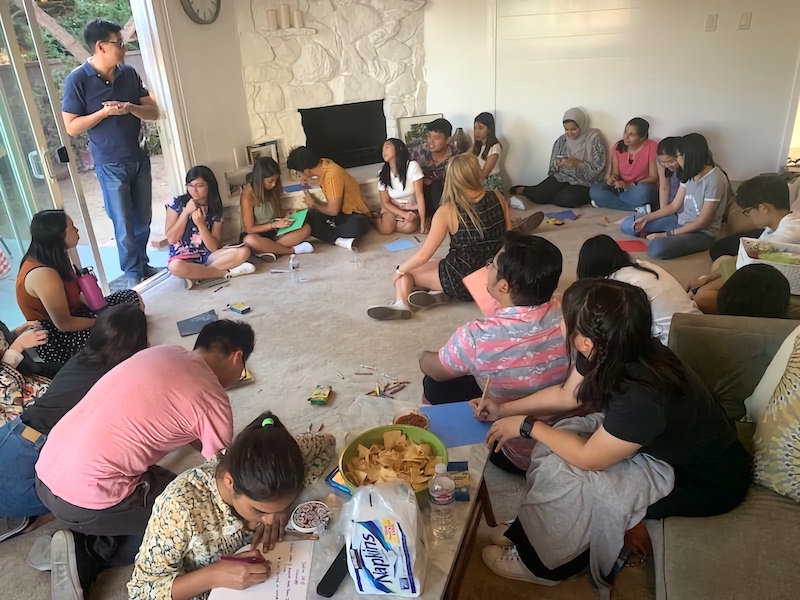
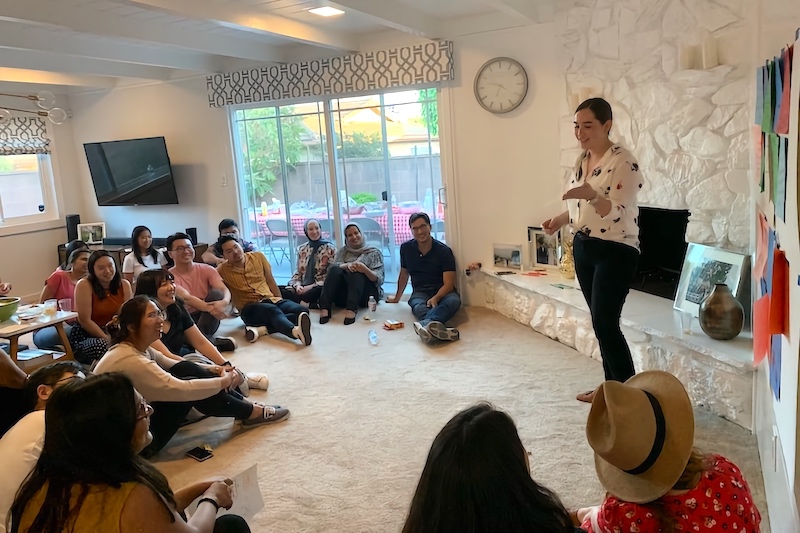
Dr. Emily Ochi, the MA1 Program Director, shared how excited she is to work with us. She fondly tells us how lucky we are to be in a very diverse class where we can learn from each other’s background.
I am sure that after a year filled with fun and learning, our dreams will turn into our reality!
FIGHT ON!
⋯

Finding Family in Diversity ⟩
September 4, 2019, by Japeth
Diversity International
Moving out of your comfort zone to attend a university away from home is a huge change and thus, very challenging. Although for some, it might be an exciting milestone, others may be very anxious about it. For me, I had to experience so many changes at once. However, what kept me going during my first few weeks in LA was the support that I constantly received from any family and their physical presence here in LA at my most crucial adjustment phase. When they went home to the Philippines, it felt as though everything now is on me. I must say that living far away from home is a tough choice to make.
Most of my cohort have the same sentiments with me. We all came from different parts of the world and we are now living on our own in this beautiful city. We have known each other for just a week now, but we found the comfort of our homes in the arms of one another. Isn’t it amazing when we just met new people but it feels like we have known them for so long? One week has passed but I am looking forward to a very exciting and fruitful year together with my cohort!
This is all of us during the White Coat Ceremony last August 23, 2019. Our cohort consists of students from the Philippines, India, Taiwan, Saudi Arabia, Jordan, and the US.
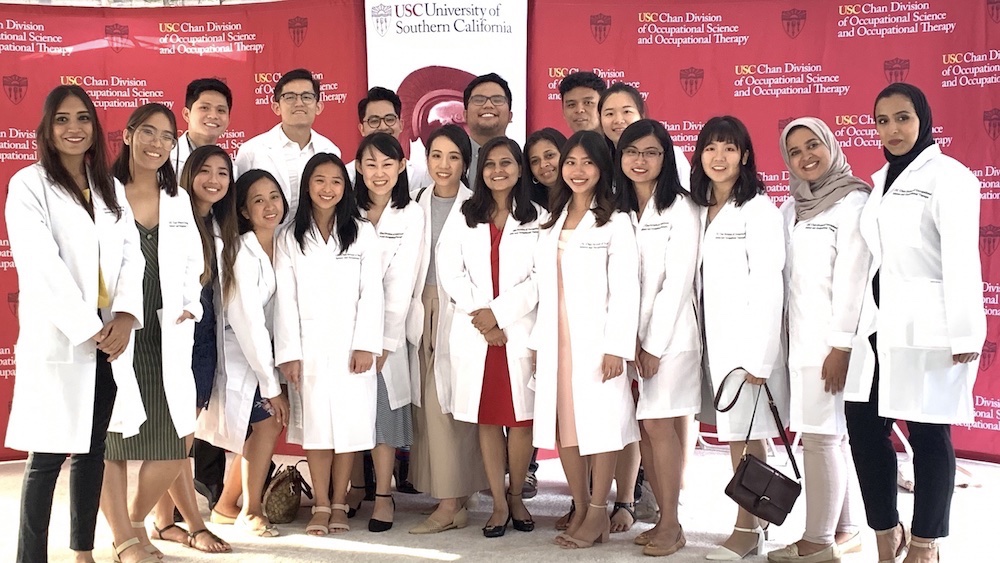
I would like to share our other photos too!
If you have questions about the Post-Professional Master of Arts Degree, feel free to contact me through my email at .(JavaScript must be enabled to view this email address).
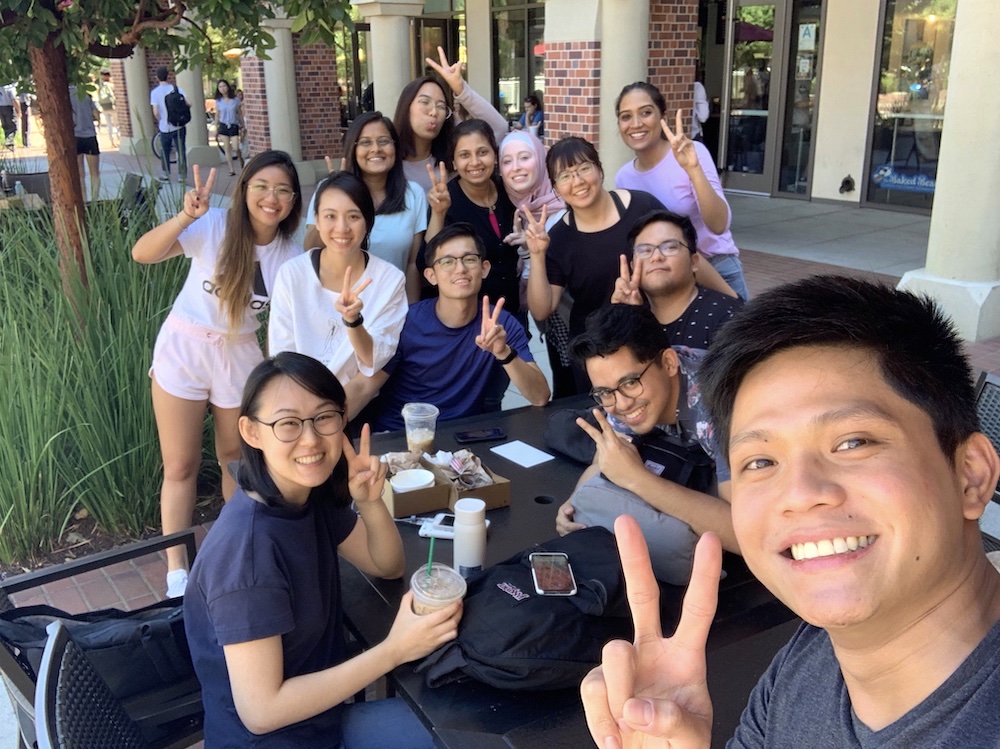
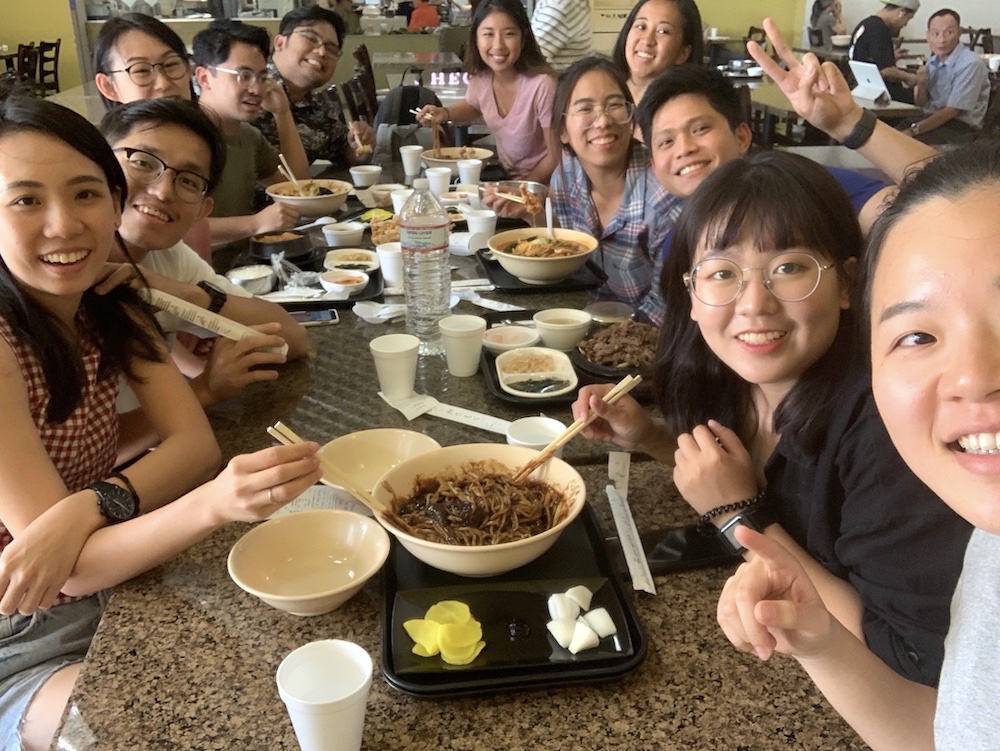
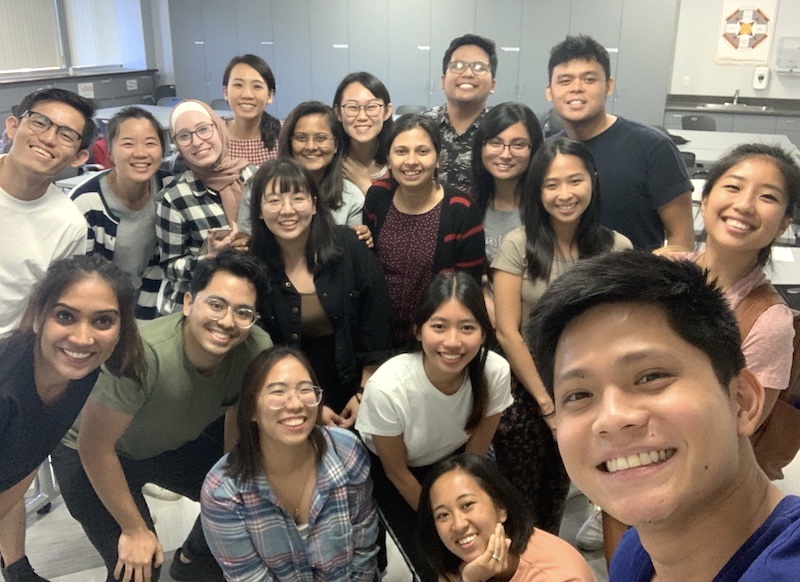
⋯
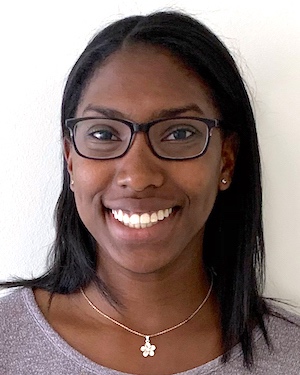
Summer is For Traveling ⟩
June 28, 2019, by Anijah
International School/Life Balance
My dad always tells me that it is very important to travel if you have the opportunity. My dad believes that traveling allows a person to see more of what the world has to offer. However, when the summer comes around my sister and I always go to the same places, such as Sacramento or Las Vegas with family. We go to these places because we are comfortable there. But this summer I decided to go to some new places.
Luckily, my sister was studying abroad this summer in Paris, so that was my first stop. During our time there we went to the usual tourist places such as the Eiffel Tower and various Museums. One of my favorite places that we visited, while in Paris, was the Saint Chappelle chapel because of the vibrant colors. If you ever get the chance to go to France, make sure you stop by to see the amazing glass work in the chapel. We also tested out some really cool restaurants, which allowed us to broaden our palettes and our waistlines.
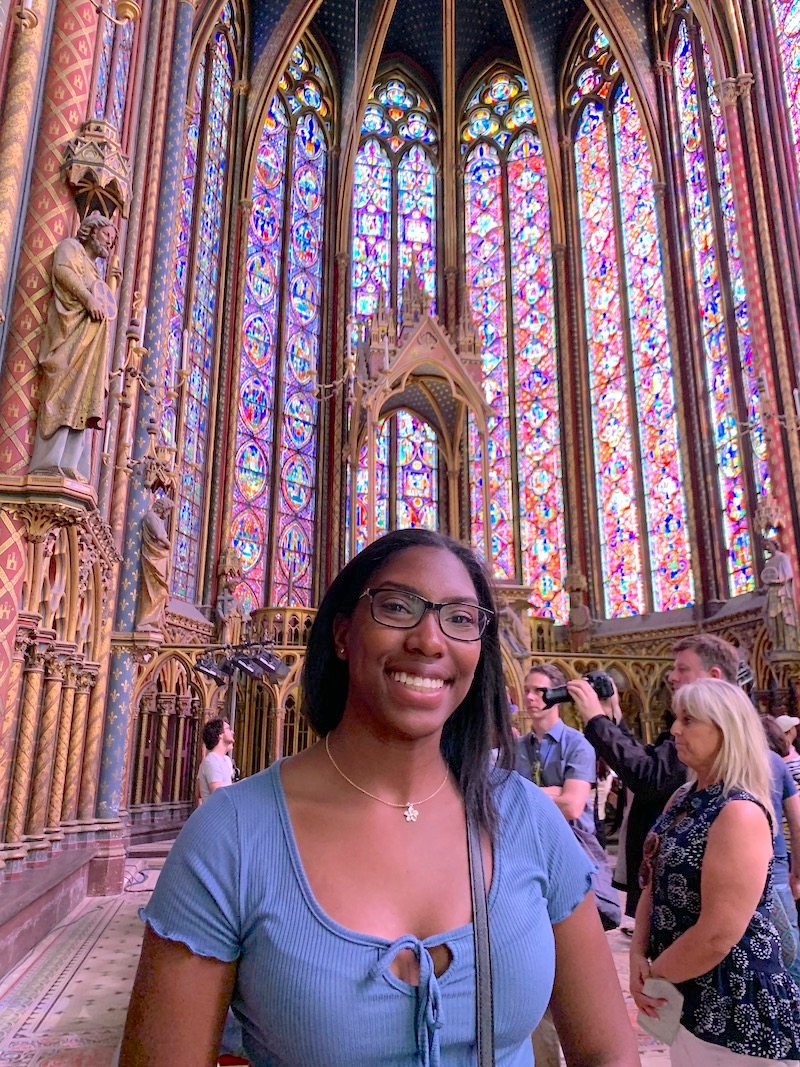
We also got a chance to visit Amsterdam. This has now become one of my favorite places to visit. We had a great time there. Amsterdam is known for a variety of things. But the main things we enjoyed were the canal system and their Holland fries. We also had the opportunity spent most of our time with our cousins. Surprisingly, I found out that one of my cousins is studying to become an Occupational Therapist. It was amazing to hear about the similarities between our adaptive tools and procedures.
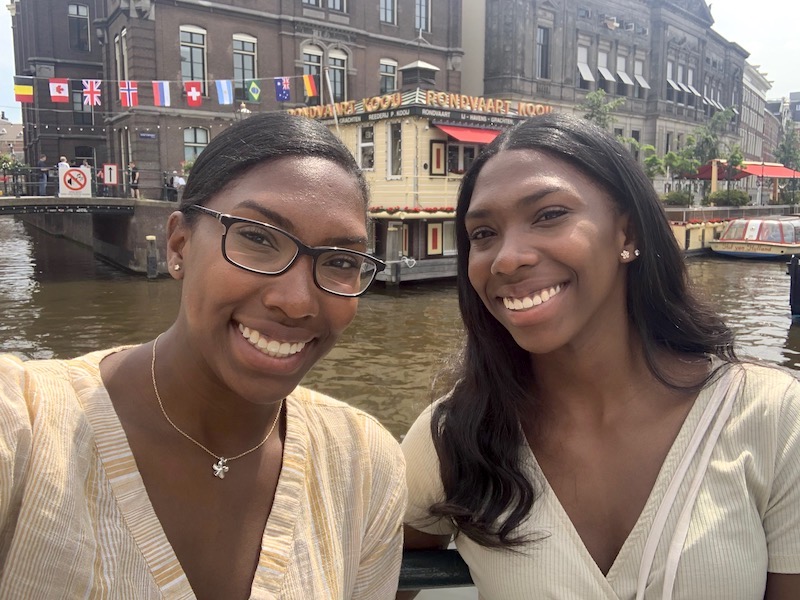
Europe is different from the US for many reasons, but one of the main differences that I enjoyed while there was the transportation system. Since it was the first time traveling internationally without any family, we had to learn how to get around and, it was so easy to figure out. By the end of our trip, I became a pro at using the trains to get to our destinations, with a little help of maps and the people, who were so nice and helpful. Europe is a great place to travel. I hope to go back soon.
⋯





